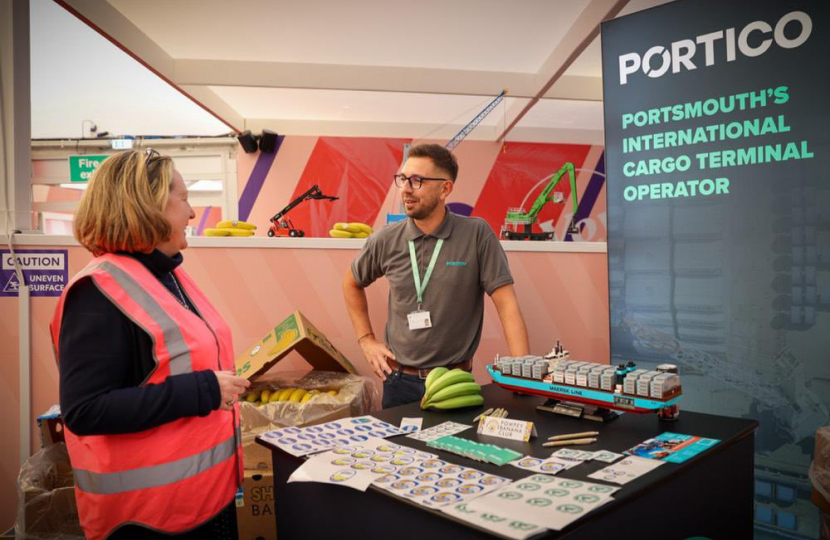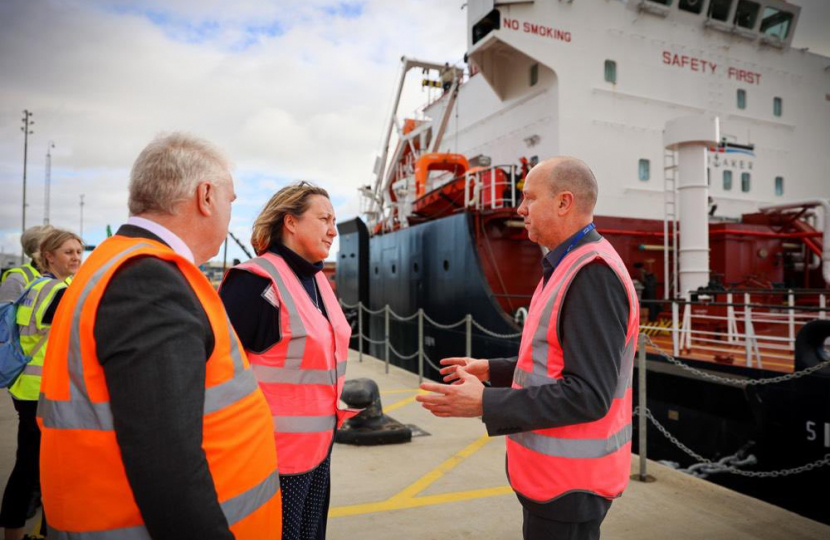The most urgent challenges we face as a country are growing our economy and tackling climate change. So often portrayed as competing priorities, they are in fact wholly compatible and mutually supportive. That is why we are working together to build the greenest and most competitive maritime sector in the world.
We saw during the pandemic how crucial maritime was to our economy. When the country was in lockdown, it was our ports and ships which kept goods and trade moving. As we recover from the pandemic, the industry has an equally vital role to play, rebuilding supply chains and keeping us plugged in to the global economy.
But in order to grow, maritime must decarbonise, and we must seize the opportunities that this green maritime revolution offers. Just as Britain once manufactured the biggest and most powerful vessels, in the future we will build the cleanest and most technologically advanced, where vessels are piloted autonomously from our coasts, and where the Teslas of the seas are constructed in our yards.
That’s a message we are promoting across the country right now during Maritime UK Week, as the industry opens its doors to the public, and thousands of schoolchildren visit ports from the Isle of Wight to Aberdeen. We hope to inspire the next generation of talent to join maritime’s journey to net zero.
Maritime is pivotal to an island nation like ours. According to the Centre for Economics and Business Research, maritime contributes £116bn to our economy, employs more than one million people, and carries 95 per cent of trade goods by weight. We boast world-class capabilities in areas such as marine equipment and systems, professional services, leisure, cruise, autonomous vessels and marine science. But we must work fast to stay ahead of our competitors as the industry decarbonises.
Our National Shipbuilding Strategy, Maritime Capability Campaign Office, Freeport programme and new UK Shipping Office for Reducing Emissions (UK SHORE) will help us achieve those goals. The Shipbuilding Strategy will deliver £4bn of government-wide investment, including a pipeline of 150 naval and civil vessels for the country to provide growth opportunities for our manufacturers.
Through the Clean Maritime Demonstration Competition, the government is funding decarbonising initiatives across the UK – and industry is responding. Projects such as the world’s first green submarine, and an electric workboat that flies over the sea using aerospace technology – another world’s first – are among those we are pioneering.
The government recently announced £60m further support through the Clean Maritime Demonstration Competition for innovators working on new maritime technologies, part of a £206m investment. From new fuels and marine batteries to automated vessels, we are working hard to develop the breakthrough ships of the future. After all the disruptions to trade and travel during the pandemic, it is remarkable that maritime is on course to grow faster than pre-Covid levels this year. But with the global maritime economy predicted to double in size by 2030, our ambitions for the future are far greater.
By leading in green maritime, and exporting our technologies around the world, we can not only play a significant role in addressing climate change. We can also supercharge our growth as an independent trading nation. As we bring down barriers to overseas commerce, clean maritime can become one of our greatest assets. Yet the benefits will help level up our country, bringing prosperity and jobs to coastal communities across the UK.
Photos: Anne-Marie's visit to Portsmouth for Maritime Week, 15 October 2022.




